Not All Bugs Need Drugs: Use Antibiotics Wisely
Antibiotics aren’t always the answer. Find out when they help—and when they don’t.
Get the Latest Medication Safety Newsletter
Safety tips, important medication insights and updates - delivered straight to your inbox, for free!
It’s that time of the year—cough, cold, and flu season. If you see your doctor or nurse practitioner with symptoms such as a runny nose and cough, you might be expecting a prescription for an antibiotic to help you get better. It’s important to know that antibiotics work only against bacteria, NOT the viruses that cause common colds and flu.
Over-use of antibiotics can do more harm than good. It can lead to a serious health concern called “antibiotic resistance”. This problem causes antibiotics to not work well when they are needed. The keys to preventing antibiotic resistance are to use antibiotics only for treating infections caused by bacteria and to use them for the correct length of time.

The following tips can help you and your care team use antibiotics wisely and prevent antibiotic resistance:
- Ask your health care provider:
- Does my illness need treatment with an antibiotic?
- Are there non-prescription medications that might help me feel better?
- If your health care provider decides that an antibiotic is needed, follow the instructions on the prescription, including how often to take it and for how long. Don’t stop taking the medication early, even if you feel better.
- You may be given a prescription for an antibiotic with the instruction to fill the prescription only if your infection does not get better after a few days. Follow the instructions carefully, and get the prescription filled only if you need it.
- Stay healthy! Prevent illness by washing your hands, getting your vaccinations, and wearing a mask in crowded places.
Find out more about the wise use of antibiotics:
This newsletter was developed in collaboration with patients and families.
Learning from consumer reports is shared with health care providers through ISMP Canada publications.




